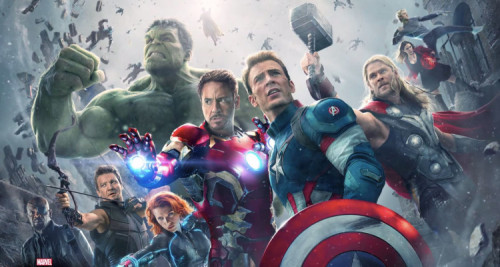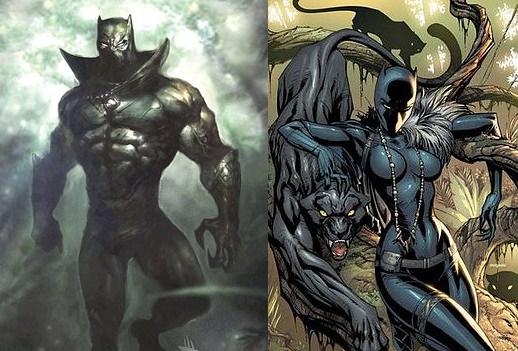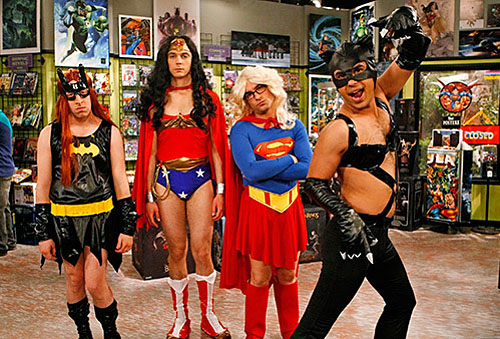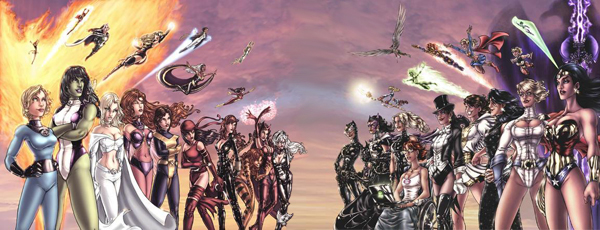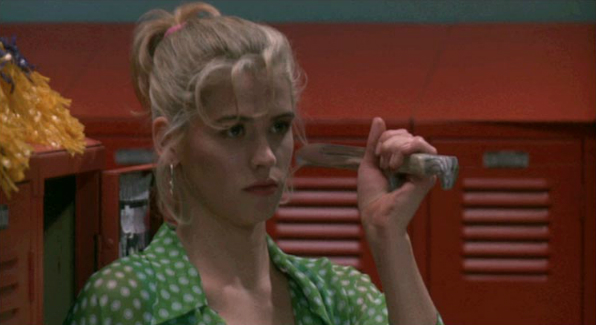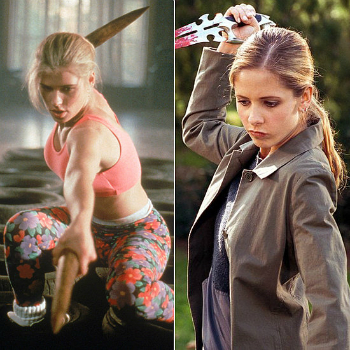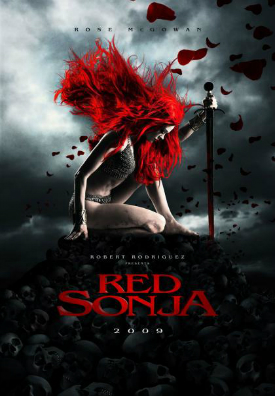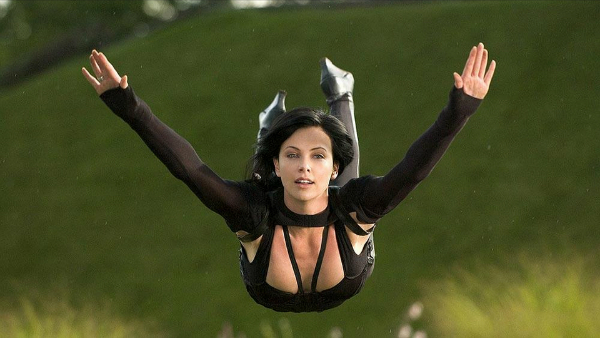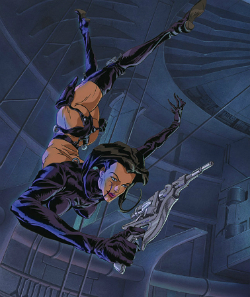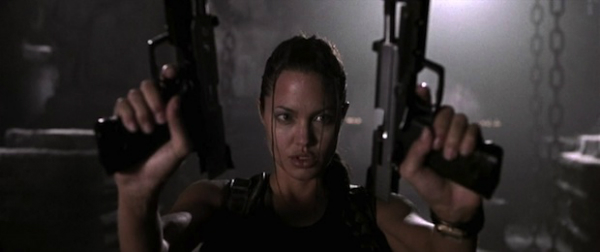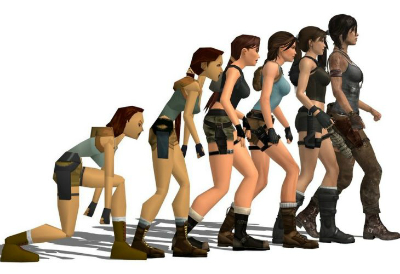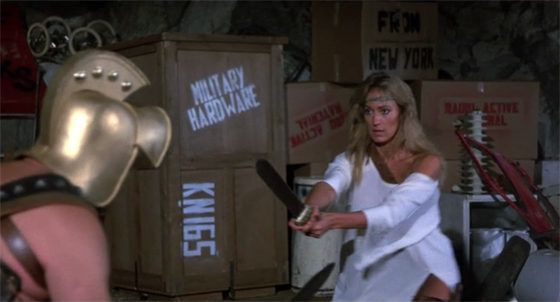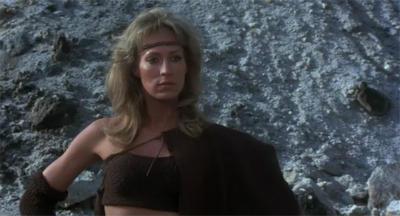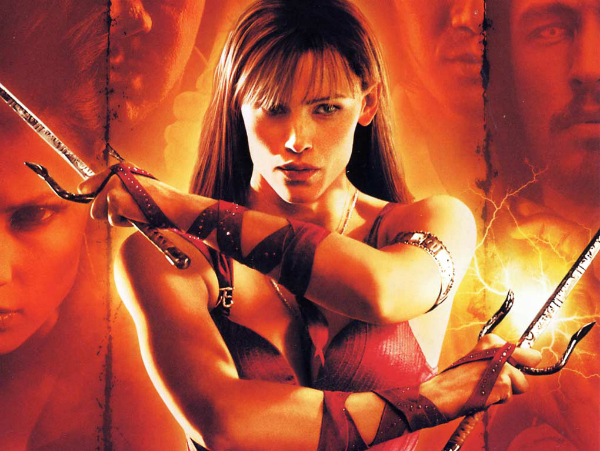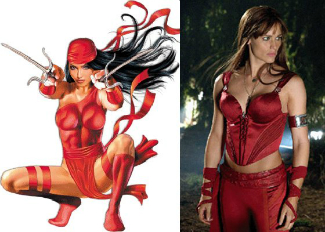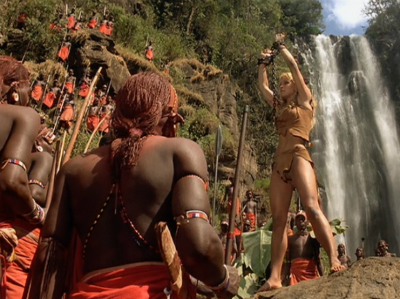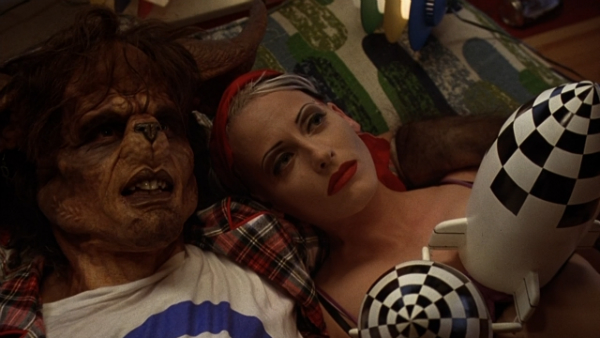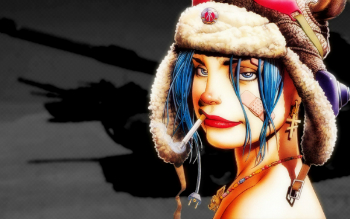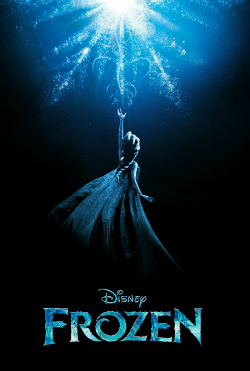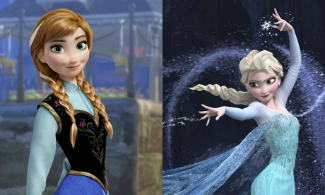This guest post by Natalie Wilson previously appeared at Skirt Collective and is cross-posted with permission.
Black Widow has far more clothing than Wonder Woman. The fact that this seems worthy of noting is not the greatest recommendation for super-heroes as a vehicle for feminism. Yet, Wonder Woman was created by a feminist – and envisioned AS a feminist super-hero (as documented in Jill Lepore’s book, The Secret History of Wonder Woman).
Are Black Widow and Scarlet Witch feminist heroes as well? In my book, yes. However, some of their fellow super-heroes (and the actors who play them) don’t make the feminist cut due to their propensity for “rape jokes” and slut-shaming (Tony Stark is guilty of the former, while Jeremy Renner and Chris Evans of the latter, as discussed here and here).
As discussed in “An Open Letter to Joss Whedon from a Disappointed Feminist Fan After Watching ‘Age of Ultron,’” Whedon has “maintained, loudly and publicly, that you were on the side of making that world a better, more welcoming, more nuanced place for women — as fictional characters, and as viewers.” Yet, as the post documents, Black Widow’s story arc is disappointing from a feminist perspective while Black Widow’s powers ally with those “dreamed up by men who are terrified of women.”
Alas, while I went in fully expecting to start itching to leave early, Avengers: Age of Ultron kept me hooked until the end. A large part of this is thanks to Black Widow and Scarlet Witch, and, yes, as much as I was NOT a fan of the Iron Man sequels and feel Tony Stark is a high-octane-asshole, I still have a soft spot for Robert Downey Jr. I blame the 80s.
Age of Ultron may suffer from a bit of Smurfette Syndrome, but Natasha Romanoff/Black Widow is a complex character with a rich backstory, not just a sidekick. In this film, she is shown to be friends with Laura Barton, is called Auntie by the Barton/Hawkeye children, and interacts with Dr. Helen Cho, Maria Hill, and Wanda Maximoff/Scarlet Witch all in ways NOT about romance with a man, making the film pass the Bechdel Test several times over.
The scene with her blazing after Ultron on a motorcycle was one of the highlights of the film for me (though I could have done without the “I am always having to pick up after you boys” joke when she grabs Captain America’s shield from the road). Regarding action, super-hero skills, and the ability to banter (an aspect of the film many reviewers like the most), there is not much of a gender differential. The inclusion of a “rape joke” and the perpetuation of the infertile-women-as-monstrous trope detract from this more egalitarian super-hero world, however.
Yet, thankfully, one of the additions to the Avengers team – Wanda Maximoff/Scarlett Witch – gives Black Widow another woman to fight the good fight with. Like another female associated with red and witchery, Carrie White, Wanda’s primary skills are mind manipulation and telekinesis. In one scene, as she stops a train with her mind, her hands emit enough bright red to rival Carrie’s scarlet-hued infamy.
I gotta admit super-hero films are not my favorite genre – not by a long-shot. That I stayed until the credits means the film kept me engrossed, providing enough story arcs to keep me interested– especially the Black Widow/Hulk romance theme. Ironically, this sub-plot irked me the most.
On the one hand, I enjoyed it, which made me feel like a bad feminist. Why? Because when films/genres that need not bring romance into the plot do so in overt ways, I feel as if we are back to the “women are only good as lovers/girlfriends/wives” meme. I like romance as much as any normal human does that lives in a culture such as ours, but need we pair off the entire planet hetero-monogomous style EVEN in our super-hero movies? (Please, SOMEONE, make a queer-positive Batwoman film!)
On the other hand, I also loathed it for its May/December connotations. Johansson is 30, Ruffalo 47. Imagine if Natasha was instead paired with someone near her own age? GASP. What a concept.
Further, the scenes where Black Widow takes Hulk’s huge hand to calm him back into his nice-guy-Bruce- Banner-self are too redolent of Beauty taming the Beast. And, given as the Hulk is presented as the MOST monstrous, so monstrous it is not safe for him to be around civilians, should it bother us that Natasha pines for the Green Guy? Sure, Bruce is a nice guy, but his “alter ego” has a wee bit of an anger management issue.
Hulk is, I must admit, a better choice than Iron Man/Tony Stark, he of wealth-amassed-via-militarism. With lines like “I see a suit of armor around the world,” the film itself nods to his pro-weapon-douchery. Further, the super-hero twins were orphaned due to a weapon labeled “Stark,” a point Wanda emphasizes. Later, she points out Ultron’s earth-destroying impulses come from the person who designed him, Tony Stark:
“Ultron can’t tell the difference between saving the world and destroying it…where do you think he gets that?”
Thus Tony, in my book, is horrible partner material (a fact that escapes the naïve Bruce Banner). He jokes about reinstating “Prima Nocta” (which sanctions rape), creates yet another world-destroying weapon via Ultron, and even scolds Natasha, “you and Banner better not be playing hide the zucchini” (ha ha, so funny to think about the BIG green man and the Black Widow boning… thank goodness the joke didn’t use a “black hole” reference as well…) Nevertheless, as I will admit, Downey is great in the role. He makes Tony the guy you love to hate.
Speaking of hate, I full on HATED the fact Black Widow cries when she reveals she was sterilized. As this post so clearly elucidates, in so doing, she equates “infertility with inhumanity.”
Finally, despite the seat-gripping special effects and a good mix of action, dialogue, and character building, I found it very hard to watch so much realistically rendered destruction due to current real world events. Buildings being demolished, the mass destruction of cities, police in riot gear, terrified humans running for their lives, stony-faced armed militia, and a long-closing arc that brings earthquakes to mind are all a bit too close to contemporary realities. Of course, this is what the super-hero genre is all about – I get it –imagining how fictional heroes could save us from tragedy. Nevertheless, it was hard to get into super-hero-cheering mode, even with Whedon’s masterful world-building. This, coupled with Black Widow’s “monstrous” infertility and Tony-Stark-douchery, made the film less enjoyable from a feminist perspective than the bulk of Whedon’s oeuvre.
Feminism insists “the personal is political” and that fictional media has a powerful role in our interactions with the real world – and, while the filmmakers could not have known the release of the movie would come shortly after a devastating earthquake, they do know that such tragic events are common place. As such, why not at least nod to how these very personalized super-heroes could serve as conduits for thinking about solving real world problems or condemn them for the problems they perpetuate – such as the “ha, ha, ha, rape is so funny” attitude.
The 3-D world that surrounds us could really use some more feminist super-hero powers – maybe next time Whedon wants to dust off his WMST degree before making his final cut?
Natalie Wilson teaches women’s studies and literature at California State University, San Marcos. She is the author of Seduced by Twilight and blogs for Ms., Girl with Pen and Bitch Flicks.
